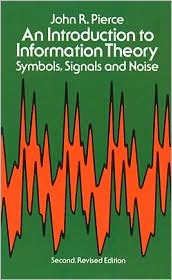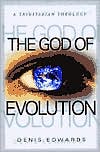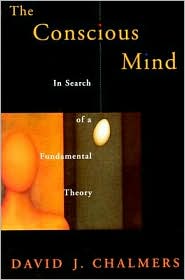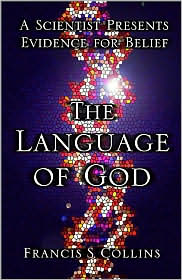Intelligent Design Goes to Court
A little Google investigation turns up this site with detailed information about the case. The official title of the case is Kitzmiller et al. v. Dover Area School District. It's being heard in the U.S. District Court, Middle District of Pennsylvania, in Harrisburg, Pa., before Judge John E. Jones III.
"The [Dover Area School District] policy [being challenged by the plaintiffs] requires that a statement be read before classes on evolution that says Charles Darwin's theory is 'not a fact' and has inexplicable 'gaps.' It refers students to an intelligent-design textbook for more information," says the newspaper. "The plaintiffs, including the American Civil Liberties Union and Americans United for Separation of Church and State, argue that the policy — which does not require students to study intelligent design — serves religious, not secular ends, violating the First Amendment."
Later in the article we read, "Of the 3,508 students in the school district just outside York, 277 ninth-graders will study biology this year. [Richard B. Katskee, a plaintiff lawyer with Americans United for Separation of Church and State] said evolution is presented only in half of one class period; [Richard Thompson, a defense lawyer for the school district] said it is taught in two full sessions."
Apparently, the crux of the legal issue boils down to the constitutionality of the following statement, which is required to be read in class to high-school biology students before Darwin's theory is introduced:
The state standards require students to learn about Darwin’s Theory of Evolution and to eventually take a standardized test of which evolution is a part.
Because Darwin’s Theory is a theory, it is still being tested as new evidence is discovered. The Theory is not a fact. Gaps in the Theory exist for which there is no evidence. A theory is defined as a well-tested explanation that unifies a broad range of observations.
Intelligent Design is an explanation of the origin of life that differs from Darwin’s view. The reference book Of Pandas and People is available for students to see if they would like to explore this view in an effort to gain an understanding of what intelligent design actually involves. As is true with any theory, students are encouraged to keep an open mind.
The school leaves the discussion of the Origins of Life up to individual students and their families. As a standards-driven district, class instruction focuses on the standards and preparing students to be successful on the standards-based assessments.
(I have extracted this verbiage from a motion filed by the plaintiff parents, available in PDF form here.)
Students who object to hearing this statement are supposedly asked in advance to step out of the class while the statement is being read. Still, the plaintiffs allege, their children's constitutional rights are being violated.
 The text mentioned in the statement, Of Pandas and People: The Central Question of Biological Origins, is a recent book by Percival Davis and others which proposes an "intelligent cause" as a better explanation of the origin of species than Darwin's. It is compatible with the Intelligent Design movement.
The text mentioned in the statement, Of Pandas and People: The Central Question of Biological Origins, is a recent book by Percival Davis and others which proposes an "intelligent cause" as a better explanation of the origin of species than Darwin's. It is compatible with the Intelligent Design movement.According to the newspaper article, the actual biology textbook being used in the Dover Area School District is one written by Kenneth R. Miller, "a Brown University cell biologist and devout Catholic."
A follow-up article, "Witness says Pa. district hurting science education," appeared in the same newspaper on September 27, 2005. It quoted Miller as saying, on the witness stand, "It's the first movement to try to drive a wedge between students and the scientific process." Miller was characterized as "the first witness called yesterday by lawyers for eight families suing the Dover Area School District."
So, whatever wlse we have here, we have an argument between two textbook writers as to what ought to be taught to 9th-graders about evolution.
But it's much, much more than that. The first newspaper article I mentioned earlier says:
However [Judge] Jones decides the Dover case, the dispute over ID may not likely be settled there.
"Our aim is to get to the Supreme Court," [defense lawyer] Thompson said.
So we're talking about a court case that will potentially determine whether our schoolkids can be taught that Darwin's theory of evolution by natural selection is bankrupt science ... or, worse, a kind of godless religion masquerading as science.We're talking about a case that might eventually make it constitutional, in teaching our American youngsters about evolution, to invoke an Intelligent Designer as the scientific cause of the origin of species — as long as God is never mentioned by name, of course.
We're talking about teaching an idea that, at its core, is creationist. Though Intelligent Design accepts that all species derive over eons of geological time from a single common ancestor, it does not accept that this could have happened without supernatural help.
What's really bankrupt here, it seems to me, is the notion being offered by the Dover Area School District (DASD) that educators do their duty by (a) suggesting that the Darwinian theory of evolution that students are about to be taught is bogus; (b) mentioning a book in the library whose view — Intelligent Design — is not bogus; and (c) justifying teaching Darwin's theory anyway, based solely on the need to prepare students for "standards-based assessments."
What are we trying to do here, raise a generation of cynics?
Let's look more closely at the DASD statement, then. It holds that "the theory [i.e., Darwin's] is not a fact" and that "gaps in the theory exist for which there is no evidence."
Yes, it's just a theory — quite as well-established, though, among scientists, as Einsteinian relativity theory — but, no, there are really no gaps in Darwin's theory. The complained-of gaps are in the evidence for the theory — the fossil record — not in the theory itself. The geological record, consisting mainly of fossilized animal life, doesn't show all the gradual changes Darwin expected to occur in a slow evolutionary process by which new species replace old ones under the steady guidance of impersonal natural selection.
Those "gaps" or "missing links" in the fossil record have been explained by many of Darwin's defenders as being the result of evidentiary sparseness: we simply don't have access to all the fossils we need to prove Darwin right beyond a shadow of a doubt. Absence of evidence is not, the defenders claim, evidence of absence.
The "gaps" have also been explained by some revisionist Darwinists, such as Stephen Jay Gould and Niles Eldredge, as stemming from "punctuated equilibrium." By digging down through the geologic strata in any one fossil location, we are apt to see a long reign by Species A (an "equilibrium") abruptly terminated (a "punctuation") by its unfortunate extinction and rapid replacement by Species B.
But, as punctuated equilibrium theory recognizes, the forms that ought to be intermediate between A and B aren't typically there. Why not? Probably because B evolved somewhere else and then, having migrated to A's bailiwick, elbowed A out of existence. And we simply don't have the fossils from wherever B evolved to show exactly how that process happened. Yet presumably it happened, albeit fairly rapidly in terms of geologic time, by very tiny baby steps of evolutionary change which would have satisfied Darwin.
The DASD statement takes no notice of punctuated equilibrium or any other wholly naturalistic explanation for the "gaps" in the fossil record.
In fact, I would say that the DASD statement is so vague — and where it does pin itself down, so misguided — as to give students nothing of value to put in their hoped-for "open mind."
If students are subsequently given a half class period or even two full periods of Darwinism, that can't possibly be enough to give them any hope of understanding the ins and outs of punctuated equilibrium theory and judging whether it might properly account for the "gaps."
That may be just fine with IDers, though. Since nature abhors a vacuum, if a mind is "opened" and then not given a fair chance to choose among all the candidates to fill it, it's apt to jump to the unfounded conclusion that you can't account for the origin of species without assuming divine intervention.


















0 Comments:
Post a Comment
<< Home